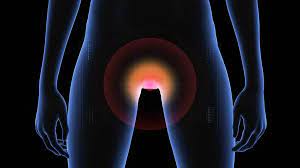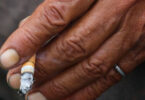The Vulva is the outer area of a woman’s genitals. Pain caused in the vulva is a disorder known as vulvodynia.
Vulvodynia is a fairly common condition, it causes severe pain, burning, and itching of the vulva. It is not known what causes vulvodynia, but possible contributing factors include the following: Injury or irritation to the nerves surrounding the vulvar region. Previous vaginal infections. Allergies or sensitive skin.
Vulvodynia can affect your general health, disrupt your daily life and affect your sex life, create anxiety or depression.
SYMPTOMS:
Pain and irritation with burning, stinging, tenderness or peeling sensations (exposed skin), discomfort, pain or throbbing sensation and swelling. This can affect the entire vulva or a specific area. As well as hormonal changes, muscle spasms or weakness in the pelvic floor, which supports the uterus and bladder.
Pressure on the vulva from prolonged sitting or wearing tight pants can make symptoms worse.
DIAGNOSIS:
The doctor might perform the following tests to determine the condition which would be the pelvic exam and swab test. They will also ask questions to learn your medical history.
GUYS:
Types of vulvodynia include:
- Vulvar vestibulitis syndrome: discomfort and hypersensitivity in the vulvar vestibule.
- Essential-dysesthetic vulvodynia/pudendal neuralgia: pain throughout the vulva.
TREATMENT:
- Medicines. Steroids, tricyclic antidepressants, or anticonvulsants may help decrease chronic pain.
- Biofeedback therapy.
- Local anesthesia.
- Nerve blocks.
- Therapy for the pelvic floor.
- Surgery.
RECOMMENDATIONS:
We must avoid intimate hygiene products that modify the vaginal pH, avoid stressful situations, follow an anti-candida diet, avoid tight underwear and synthetic fibers. Avoiding pressure on the vulva, such as from prolonged sitting or wearing tight pants, can make symptoms worse.
Home remedies: Bicarbonate. Greek yogurt. Cotton underwear. Apple cider vinegar. Probiotics. Coconut oil. Antifungal cream. Cortisone cream.
https://medlineplus.gov/spanish/ency/article/007699.htm
https://middlesexhealth.org/learning-center/espanol/enfermedades-y-afecciones/vulvodinia







